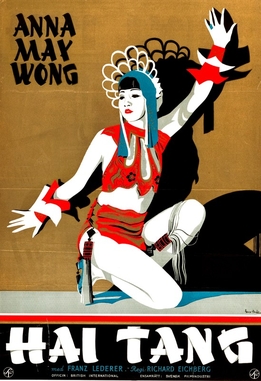Top Qs
Timeline
Chat
Perspective
Hai-Tang
1930 French-language film From Wikipedia, the free encyclopedia
Remove ads
Hai-Tang, also known as Le Chemin du déshonneur (The Road to Dishonour) is a 1930 British-German drama film directed by Richard Eichberg and Jean Kemm and starring Anna May Wong, Marcel Vibert and Robert Ancelin.[1] It was made at Elstree Studios.
Remove ads
Multiple-language versions
Like many other films of the early talkie era before dubbing became more widespread, the film was shot in multiple-language versions, each with a different cast. Three versions of the film were made so they could be screened throughout Europe and the colonial world, such as in Mozambique, Australia and South Africa.[2] This was Wong's first sound film billed as the star,[3][4][Note 1] and in all three versions she appeared as the female lead.
An English-language version (The Flame of Love/The Road to Dishonour) and a German-language version (Hai-Tang: Der Weg zur Schande) of the film were made with different casts[Note 2] except for Wong, who spoke her part in three different languages. The French-language version was sometimes referred to as L’Amour, maître des choses in French film magazines).[5] Confusingly, all three versions are often referred to simply as Hai-Tang.[6]
Remove ads
Synopsis
In the Russian Empire, a young officer and a powerful Grand Duke both fall in love with a Chinese woman.
This section needs expansion. You can help by adding to it. (July 2023) |
Cast
- Anna May Wong as Hai-Tang
- Marcel Vibert as Le grand duc
- Robert Ancelin as Boris Ivanoff
- Armand Lurville as Le colonel Mouraview
- Hélène Darly as Yvette
- François Viguier as Viguier
- Gaston Dupray as Pierre Baron, le chanteur
- Claire Roman
- Mona Goya
- Gaston Jacquet
Notes
- Wong acted in one of several vignettes in the earlier 1930 musical film review Elstree Calling.
- Ley On played Hai-Tang's brother Wang-Hu in all three versions. Mona Goya played the role of Yvette in the French and English-language versions.
References
Sources
See also
External links
Wikiwand - on
Seamless Wikipedia browsing. On steroids.
Remove ads

